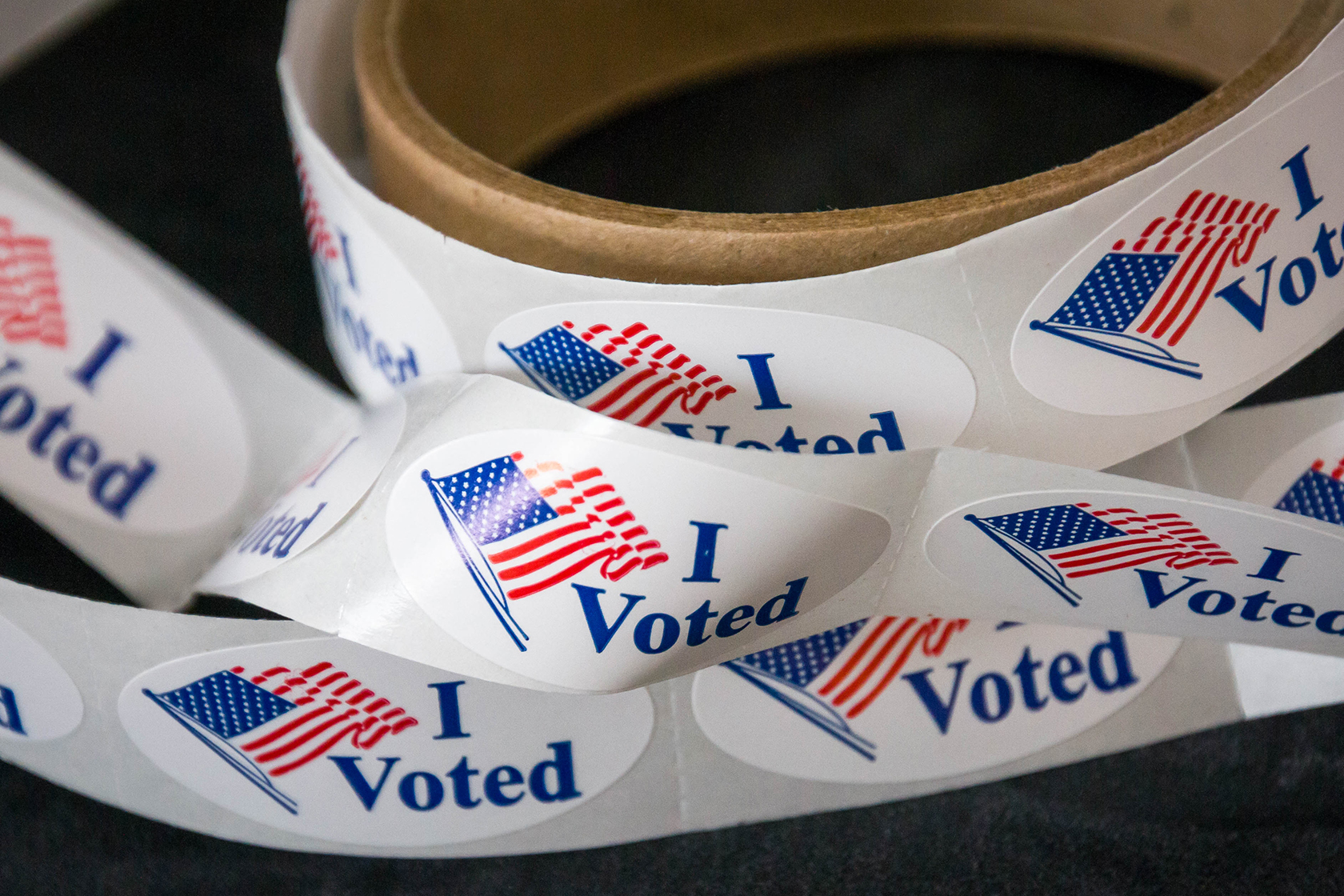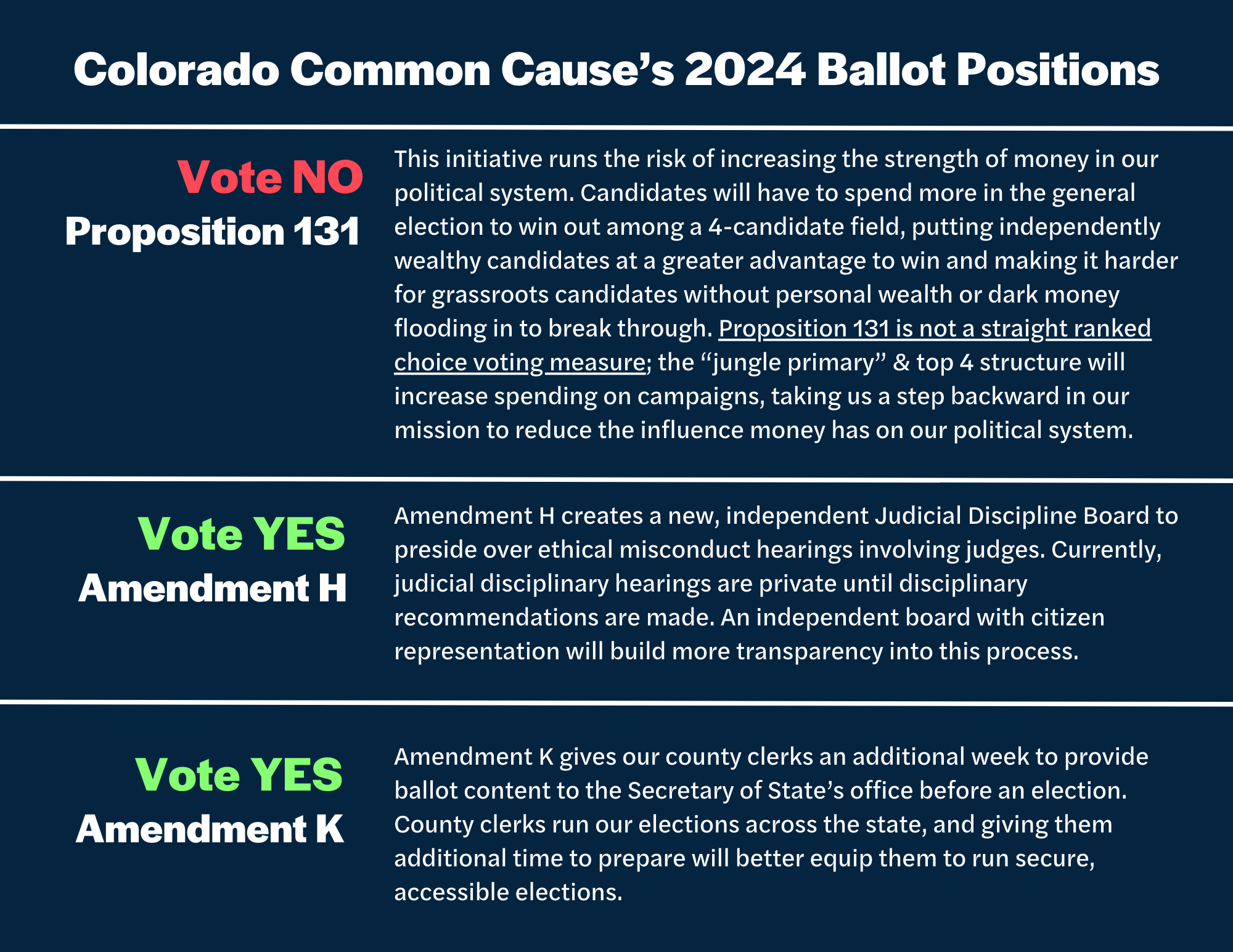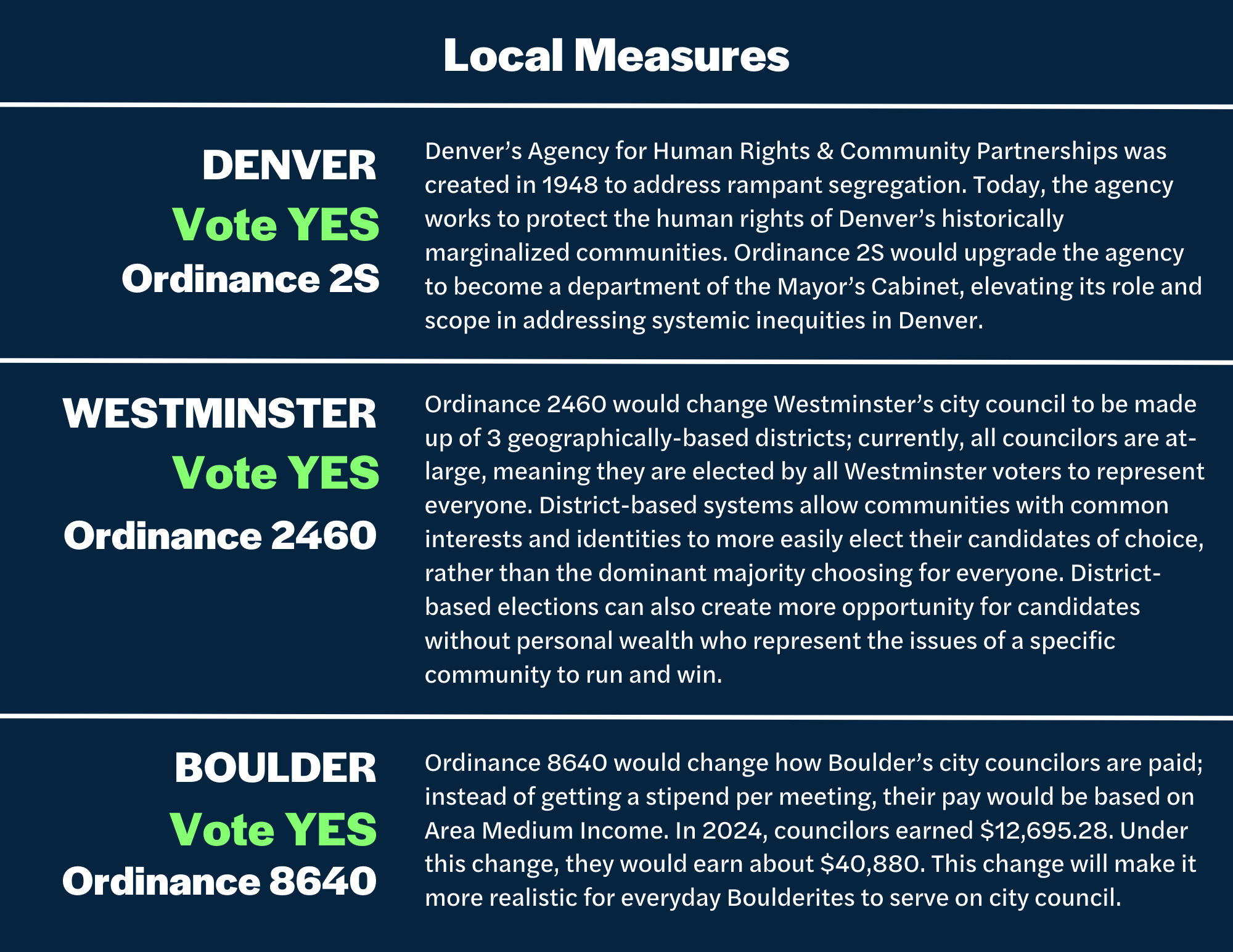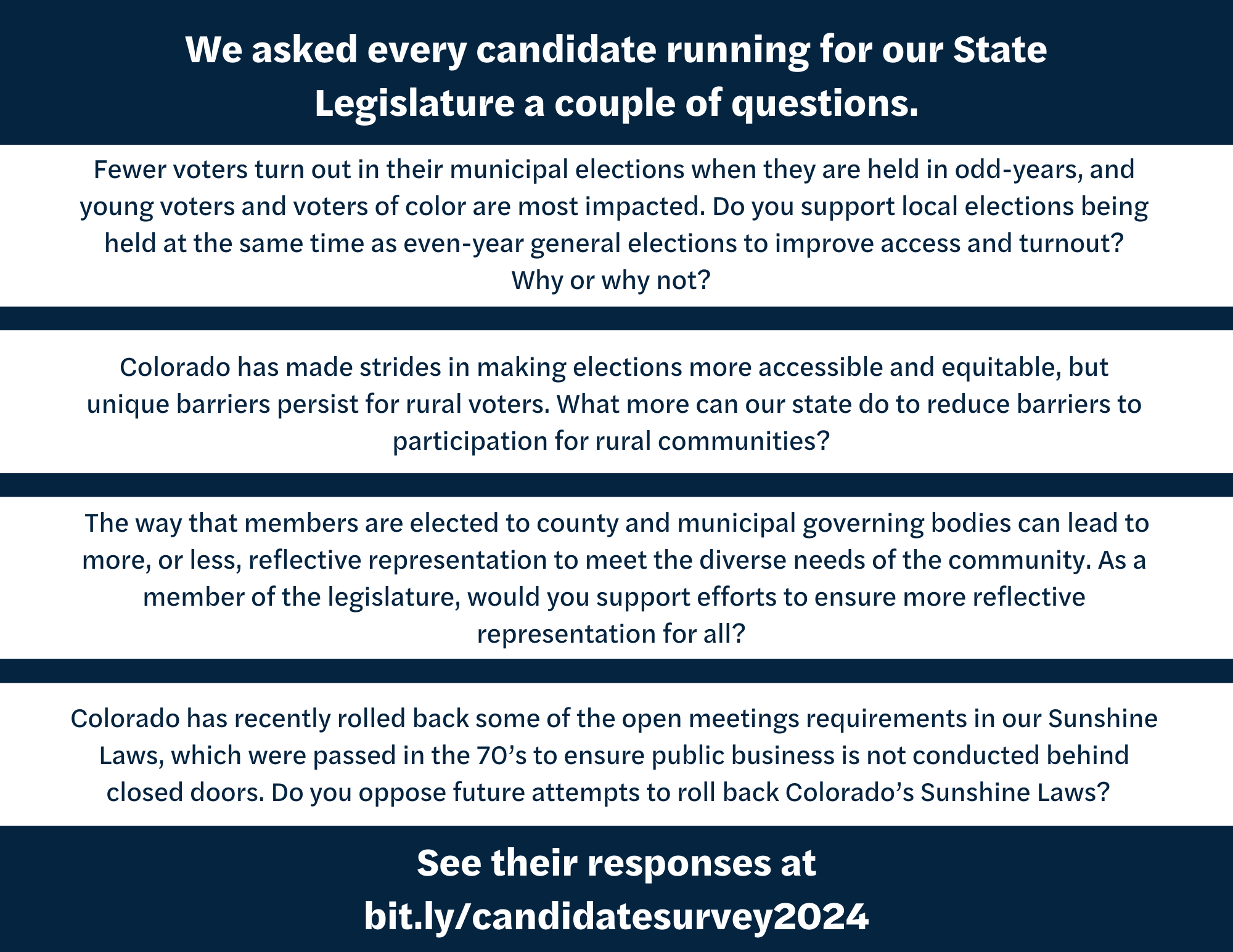2024 Ballot Guide
You can find Colorado Common Cause’s recommendations on three statewide ballot measures and three local ballot measures in our 2024 Ballot Guide. We also asked all of the candidates running for State Legislature for their positions on several critical democracy questions.
Colorado voters have tremendous power to decide the future of our state by voting on ballot measures and electing candidates who represent our values. We hope these resources will help you make informed, pro-democracy decisions on your ballot this year.



